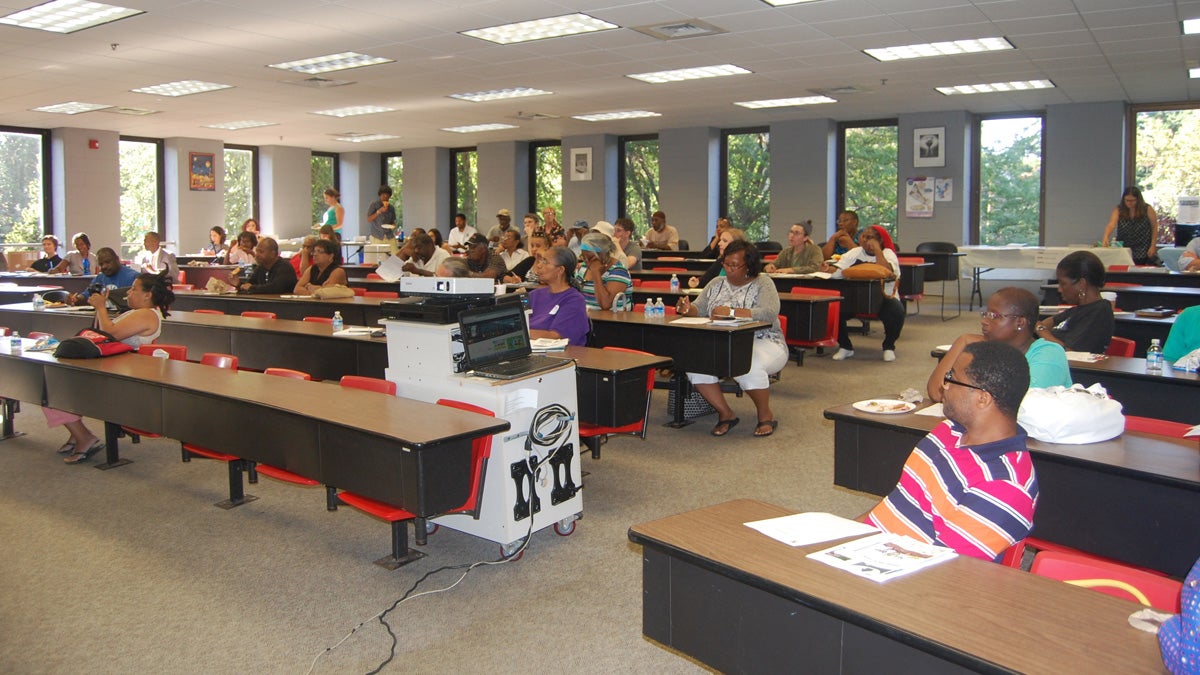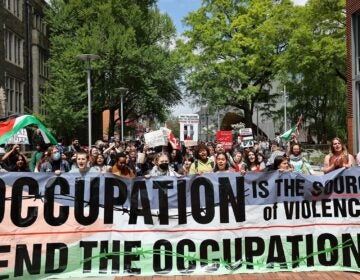Northwest Philly residents hear about reaping opportunity from vacant lots

(Emily Brooks/for NewsWorks)
The Nicetown Community Development Corporation hosted an information session Thursday to introduce residents to the newly established Philadelphia Land Bank and the opportunities it affords, specifically, turning vacant lots into community gardens.
Creating through legislation in 2014, the Philadelphia Land Bank is now in the process of creating an inventory of city-owned parcels and acquiring vacant and tax-delinquent properties for productive use.
Once it’s up and running, it’s expected to be the nation’s largest land bank. Its aim is to simplify the process of transferring properties from public agencies to private owners, which has proved nearly impossible in the past.
“The Philadelphia Land Bank will be an agency that consolidates all the publicly owned land into one entity, so that there is one organization that maintains it, one that disposes of it, and one that will uphold a defined set of rules, policies and procedures for that disposition,” said Executive Director Michael Koonce.
Thursday’s meeting, dubbed “Vacant 215,” began with guest speakers from several community and government organizations, including the Pennsylvania Horticultural Society and the Public Interest Law Center.
Sally McCabe, project manager at PHS, told attendees that legal access to vacant land has been so difficult to date that approximately 60 percent of Philadelphia’s community gardens are technically “squatter” gardens.
With the Philadelphia Land Bank, that’ll no longer be necessary. That’s welcome news to residents like Justin Waller, who wants to see more community gardens sprout up around the city.
“Vacant lots are a blight on the neighborhood and also attract trash dumping,” said Waller, whose parents had a garden in Germantown.
“Community gardens are beneficial in so many ways. They build a since of unity, are visually pleasing, promote healthy living and teach people a new skill of growing produce.”
Break out stations following the lectures allowed community members an opportunity for questions and further conversation on how to start and maintain a community garden as well as how to legally access vacant land.
“You do not get many opportunities to have representatives from so many different organizations providing information on the important topic of these vacant lands, so you are in the right place,” Amy Laura Cahn of the Public Interest Law Center said. “And what it really comes down to is knowledge is power.”
WHYY is your source for fact-based, in-depth journalism and information. As a nonprofit organization, we rely on financial support from readers like you. Please give today.





